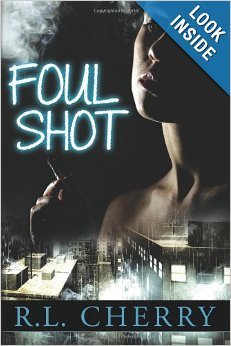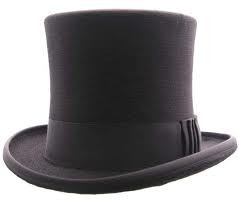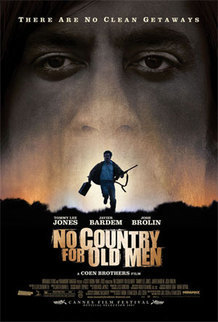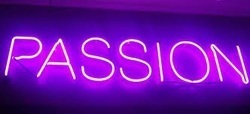Francis Berger's Blog, page 188
October 29, 2013
Kind Words About The City Of Earthly Desire From Author R.L Cherry
 Every writer strives for recognition and praise. This holds especially true for independent authors who are embroiled in the constant and seemingly futile goal of making the reading public aware of their work. Getting your work out into the market is easy; getting the market to your work is extremely difficult.
Every writer strives for recognition and praise. This holds especially true for independent authors who are embroiled in the constant and seemingly futile goal of making the reading public aware of their work. Getting your work out into the market is easy; getting the market to your work is extremely difficult. This is not a lament, merely a statement of fact. Despite efforts to make their work known, most independent authors - yours truly among them - are mired in obscurity. We put our work out into the world knowing full well that the world might not ever care about it. It's a risk we all take. If nothing else, we console ourselves with the notion that at least we are trying.
But these noble sentiments can ring hollow and false when you are seemingly sinking into oblivion. But every now and then, after months of silence and darkness, a thin, shining sliver of praise and recognition slices through the murk. You come to the realization that there do exist people who are aware of your work. Moments like that strengthen a writer's faith.
I recently experienced a sliver of praise and recognition quite accidentally while searching the internet for a blog interview I had participated in nearly a year ago. As I searched, I came across another blog featuring the author R.L. Cherry who is promoting his own work online. I read the interview and was both surprised and delighted to see that Cherry had not only mentioned my novel, but had also said kind words about it.
You can read the interview here: http://robinmartinezrice.com/interview-rl-cherry/
I contacted Ron (Cherry's first name) to thank him for the mention. He replied and graciously informed me that The City of Earthly Desire was one of the best books he had read in years. The sliver of praise felt more and more like a ray of sunshine after I read those words. Recognition from readers is valuable, but recognition from a fellow writer is truly something to treasure.
What made it even more meaningful for me was that I had no connection to Ron before I read his interview. He wasn't a friend lending support, or a book blogger filling their blog. In fact, he had no personal reason at all to mention my book, but chose to do so simply because he had enjoyed it. I can't help but feel honored.
Discovering R.L. Cherry's work is now high on my list of priorities. He cites Doyle, Chandler, and Hammet as influences, but also seems to have a passion for Twain and Hemingway. Sounds like my kind of writer! His novel Foul Shot has received great reviews on Amazon and Goodreads and through Kirkus:
 Christmas Cracker has also received many five star reviews and is also available for purchase.
Christmas Cracker has also received many five star reviews and is also available for purchase. I hope to return the favor and shine a little light of praise and recognition on Ron's work in the very near future! I invite you to do the same!
To read more about R.L. Cherry and to discover his writing please visit: http://www.rlcherry.com
Published on October 29, 2013 19:42
October 27, 2013
Why Most Self-Published Writers Don't Hire Professional Editors
Though I have not been on the receiving end of any such criticism myself, I am intrigued by the constant criticism self-published writers get from some readers concerning the quality of editing in some self-published works. Some readers are very quick to suggest the author should have hired a professional to proofread the novel before putting it on the market. This is good and, for the most part I believe, well-intentioned advice. Nevertheless, it comes off sounding a little flippant at times. Why don't most self-published authors hire professional editors? I don't care for the expression, but I would say the answer to this is one a classic no brainer. Money.
Money is the main reason why most self-published writers do not hire professional editors and proofreaders. Ninety percent of self-published books have sales of less than one hundred copies in their first year of release - this does not make the hiring of a professional editor a very cost effective option for most self-published authors.
To illustrate this point, let's create a hypothetical self-published author and call her Bertha Hack. Bertha has sold 50 print copies of her 75,000 word novel Vampire Loins on Fire for which she has received a royalty of $4.00 per copy. Her ebook sales are considerably better. It has sold 100 copies and Bertha has received $1.00 for each copy sold. So Bertha's total royalties for her debut novel is a whopping $300.
Now, let's turn to what most editors and proofreaders charge. Amazon's Createspace offers a basic copyediting service for what is considered a very reasonable price. Send your manuscript to Createspace and an editor will check over the manuscript for basic grammar, spelling, and punctuation mistakes. For this service Createspace charges $160.00 for up to 10,000 words or .016 cents per word for anything over 10,000 words. Since Bertha Hack's novel clocks in at 75,000 words, her editing job will set her back $1200.
So, if Bertha had submitted her work to a professional editor, she would still be $900 in the hole for Vampire Loins on Fire. A high price to pay just to appease a few readers who are error-sensitive. Now some might argue that Bertha would have sold far more books if she had hired a pro edit it, but this is pure conjecture. In fact, I think it's utter horseshit. There are too many terribly written and terribly edited self-published bestsellers out there that prove that the quality of editing has very little to do with sales most of the time.
As for me, I plug away at proofreading bit by bit on my own because I cannot at this stage in the game afford to pay for professional editing. My book, The City of Earthly Desire comes in at 230,000 words. Using the Createspace service as a gauge, it would cost me about $3400 to have the text professionally edited. I care about the quality of my work, but I also like to eat and buy my kid diapers.
The good thing about self-publishing and print-on-demand is you can make changes to the text at any time and as many times as you want. I have uploaded two proofread versions of my novel The City of Earthly Desire since its release a year ago. Each version is a little bit better than the one before. I'm hoping this next one I will complete in a week or two will be almost perfect. And even if it isn't, I think I'll be able to digest a criticism or two concerning editing, were they ever to come my way.
Money is the main reason why most self-published writers do not hire professional editors and proofreaders. Ninety percent of self-published books have sales of less than one hundred copies in their first year of release - this does not make the hiring of a professional editor a very cost effective option for most self-published authors.
To illustrate this point, let's create a hypothetical self-published author and call her Bertha Hack. Bertha has sold 50 print copies of her 75,000 word novel Vampire Loins on Fire for which she has received a royalty of $4.00 per copy. Her ebook sales are considerably better. It has sold 100 copies and Bertha has received $1.00 for each copy sold. So Bertha's total royalties for her debut novel is a whopping $300.
Now, let's turn to what most editors and proofreaders charge. Amazon's Createspace offers a basic copyediting service for what is considered a very reasonable price. Send your manuscript to Createspace and an editor will check over the manuscript for basic grammar, spelling, and punctuation mistakes. For this service Createspace charges $160.00 for up to 10,000 words or .016 cents per word for anything over 10,000 words. Since Bertha Hack's novel clocks in at 75,000 words, her editing job will set her back $1200.
So, if Bertha had submitted her work to a professional editor, she would still be $900 in the hole for Vampire Loins on Fire. A high price to pay just to appease a few readers who are error-sensitive. Now some might argue that Bertha would have sold far more books if she had hired a pro edit it, but this is pure conjecture. In fact, I think it's utter horseshit. There are too many terribly written and terribly edited self-published bestsellers out there that prove that the quality of editing has very little to do with sales most of the time.
As for me, I plug away at proofreading bit by bit on my own because I cannot at this stage in the game afford to pay for professional editing. My book, The City of Earthly Desire comes in at 230,000 words. Using the Createspace service as a gauge, it would cost me about $3400 to have the text professionally edited. I care about the quality of my work, but I also like to eat and buy my kid diapers.
The good thing about self-publishing and print-on-demand is you can make changes to the text at any time and as many times as you want. I have uploaded two proofread versions of my novel The City of Earthly Desire since its release a year ago. Each version is a little bit better than the one before. I'm hoping this next one I will complete in a week or two will be almost perfect. And even if it isn't, I think I'll be able to digest a criticism or two concerning editing, were they ever to come my way.
Published on October 27, 2013 19:29
October 6, 2013
Proofreading: The Stigma of Self-Publishing
 Self-published books are often stigmatized because they lack quality in editing and proofreading when compared to traditionally published books. It is a valid criticism. There is no denying that self-published books, be they fiction or non-fiction are, more often than not, littered with grammatical errors, questionable punctuation, missing words, extra words, misused words, misspelled words, and a good helping of typos to boot.
Self-published books are often stigmatized because they lack quality in editing and proofreading when compared to traditionally published books. It is a valid criticism. There is no denying that self-published books, be they fiction or non-fiction are, more often than not, littered with grammatical errors, questionable punctuation, missing words, extra words, misused words, misspelled words, and a good helping of typos to boot. Having said this, I wonder how it could be otherwise. Comparing a self-published book to a traditionally published book is about as fair as comparing an independently-produced, small-budget film to a major Hollywood blockbuster. Both can be well-scripted, well-acted, and well-directed. In fact, the independent film could be more interesting or engaging on many levels, but in terms final product, the Hollywood film, regardless of how asinine its premise, will ultimately be more polished than the indie film.The reasons for this are obvious and I don't think I need to go into them - essentially, it all comes down to money and people.
Returning to the subject of books, traditional publishers employ a small army of proofreaders, editorial assistants, fact-checkers, and editors who pour over a manuscript as many as a dozen times to ensure all the i's are dotted and the t's are crossed, whereas most independent authors are the sole editors and proofreaders of their own manuscripts. At best, an indie author might have a small circle of writer-friends and beta-readers who might enjoy locating and eliminating textual anomalies. Regardless, it's plain to see that in terms of proofreading firepower, the self-published writer is utterly outgunned by traditional publishers.
Let's take it as a given then that the self-published book will not be as polished as the traditionally published book. Does that necessarily make the self-published book an inferior reading experience? If the text is absolutely saturated with outlandish errors of every kind, so saturated that it is often difficult to discern what the writer is trying to communicate, then I would have to say yes; however, I have seen many novels that suffer from the affliction described above go on to garner positive reviews and respectable sales. In some instances, horribly edited books have even become bestsellers. On the flip side, I have seen readers complain about self-published books that may have had two or three spelling mistakes, but were otherwise error-free.
In the end it might come down to an individual reader's error breaking-point. Some readers are able to tolerate many errors; others, none. It is interesting to note that readers of the most popular genres - romance, erotica, paranormal romance, young adult, etc., - tend to be the most forgiving when it comes to poor proofreading, while those geared more toward general, historical, or literary fiction tend to be the least forgiving. I won't go into the reasons why - all-in-all, I think it's fairly obvious.
Concerning my own novel, I owe a debt of gratitude to the small group of people who have read it thus far. They have been extremely gracious and forgiving about the typos and errors the text contains. I've proofread the novel twice since uploading it to Amazon a year ago. The first version of the novel was infected with errors. Subsequent versions have been significantly better. I'm in the midst of one final proofread at the moment. Hopefully, it will be my last. I doubt I will catch every error in the novel, but I'm sure to catch most and I sincerely hope that the few errors that might remain won't test any future reader's breaking-point.
Published on October 06, 2013 16:51
Knocking Hats Off Heads
 I receive far too many unsolicited telephone calls from people with distinctive South Asian accents trying to sell me duct-cleaning or other nonsense. Though I find the calls incredibly annoying, I'm usually polite with the person on the other end of the line as I decline whatever it is they are trying to talk me into purchasing.
I receive far too many unsolicited telephone calls from people with distinctive South Asian accents trying to sell me duct-cleaning or other nonsense. Though I find the calls incredibly annoying, I'm usually polite with the person on the other end of the line as I decline whatever it is they are trying to talk me into purchasing.Yesterday I received a call from a pushy man who claimed I had won a vacation by filling out a form in Wal-Mart or Sears; I was anything but polite during that conversation.
The "you-won-a-free-vacation" ploy is one of the oldest scams in the world of telephone solicitation - it inevitably ends with the winners of the "free" vacation having to dispense their credit card information for administration fees required to secure the non-existent vacation. You can guess what happens if you fork over your credit card number. I pictured this scam-artist swindling unsuspecting people out of their money and clenched my teeth as I listened to him prattle on. Ethical considerations aside, there was a quality of arrogance in the man's voice as he blatantly lied to me over the phone that caused my blood to boil. Quite uncharacteristically, I began to shout a string of rather worn profanities into the phone calling the man, among other things, a parasite, scumbag, and piece of human excrement. I was seething after I ended the call. It was only then that I remembered my eleven-year-old niece and twenty-two- month-old son were sitting in the kitchen with me. Feeling thoroughly ashamed, I muttered a vague apology and tried to justify the rage I had unleashed, but there was no excusing what I had done.
The incident bothered me for the greater part of the day. Why did I lose it like that? I tried convincing myself it was moral indignation, but I knew that was no explanation. After a few hours of picking away at it, I came to a realization - the outburst had nothing to do with the phone call but was the symptom of a much larger ontological problem I have been wrestling with semi-consciously for the better part of the past year. Once this dawned on me, I could not help but remember the opening paragraph of Herman Melville's Moby Dick in which the protagonist Ismael reveals the real reason why he chooses to go to sea:
"Whenever I find myself growing grim about the mouth; whenever it is a damp, drizzly November in my soul; whenever I find myself involuntarily pausing before coffin warehouses, and bringing up the rear of every funeral I meet; and especially whenever my hypos get such an upper hand of me, that it requires a strong moral principle to prevent me from deliberately stepping into the street, and methodically knocking people's hats off--then, I account it high time to get to sea as soon as I can. This is my substitute for pistol and ball."
Like Ismael, I'm experiencing a damp, drizzly November of the soul and I often feel stepping into the streets and knocking hats off heads. Unlike Ismael, going to sea will not cure the affliction and, regardless of how damp and drizzly it gets in my soul, I have never felt the urge to reach for the pistol and ball. Nonetheless, I do realize that I require some significant changes in the near future and it is high time I start working on them as soon as I can before hats go-a-flying.
Published on October 06, 2013 15:14
September 28, 2013
Best Film Adaptation of a Novel
 Though I value it highly and appreciate its greatness, Cormac McCarthy's No Country For Old Men is not my favorite novel in the world. Likewise, Joel and Ethan Coen's film of the same name is not my favorite film. Having said that, I declare that the Coen brothers' 2007 film adaptation of McCarthy's 2005 novel is by far the best film adaptation of novel yet made.
Though I value it highly and appreciate its greatness, Cormac McCarthy's No Country For Old Men is not my favorite novel in the world. Likewise, Joel and Ethan Coen's film of the same name is not my favorite film. Having said that, I declare that the Coen brothers' 2007 film adaptation of McCarthy's 2005 novel is by far the best film adaptation of novel yet made. Adapting novels to film is, and has always been, a tricky business. How many times have you heard the old cliche the movie was okay, but the book was much better or the movie was good, but they left out so much whenever you speak to someone about a film adaptation about a novel you may not have read? Perhaps you have uttered such phrases yourself when you learned a person praising a film adaptation had not had the privilege of reading the novel first. Like most cliches, the comments above do contain the kernel of a fundamental truth - the book often is far superior to the film. Taking a textual narrative and all the nuances it shrouds within itself to another form of media where shrouded nuances are practically impossible to present is no simple task. In many ways, adapting a novel to film is similar to translation. And like translation, much can lost in the process.
Having said this, nothing of McCarthy's novel is lost in Ethan and Joel Coen's No Country For Old Men. Nor is anything added to sensationalize or explain or sentimentalize. The film simply, faithfully, and quite magically brings the novel in, all its darkness and Biblical bleakness, to life.
I remember sitting mesmerized the first time I saw the film. The vision the Coen brothers brought to the screen not only seemed to match McCarthy's vision seamlessly and faultlessly, but it also matched the visions the novel had created in my own mind when I had read it. This is no easy feat. I think the main reason why so many are disappointed by film adaptations of books has less to do with the faults and shortcomings of the films, but the simple fact that the images on the screen often do match the personal images a reader creates when they read the books. Watching an alternate vision for the book than the one you imagined is akin to looking at a good friend, a person you thought you knew very well, and realizing that person is nothing more than a stranger. In other words, it amounts to little more than a quintessential let-down.
You will suffer no such disappointment if you watch No Country For Old Men after having read No Country For Old Men. For reasons that are far too numerous for me to go into detail here, the film exists as a mirror image of book - so much so it still strikes me as eerie whenever I sit down to watch it. And if you haven't read McCarthy's novel, I would, with assured confidence, suggest you simply watch the movie. The film adaptation is so brilliant that if you are not a reader I would even go as far as to suggest you only watch the movie (banish the thought!) because watching the movie would, in essence, provide you with the same aesthetic experience as the novel. Needless to say, in the realm of film adaptations of novels, that experience is extremely rare, which is why Ethan and Joel Coen's achievement is so outstanding.
Published on September 28, 2013 21:46
September 27, 2013
An Anniversary of Sorts
 This week marks the anniversary of the release of my novel The City of Earthly Desire and though I am not attempting to assign this time any particular significance, I thought it might be interesting to reflect upon the year that has passed and share some experiences and thoughts:
This week marks the anniversary of the release of my novel The City of Earthly Desire and though I am not attempting to assign this time any particular significance, I thought it might be interesting to reflect upon the year that has passed and share some experiences and thoughts:- Since its release, 62 copies of the novel have been purchased through Amazon and other online vendors. This figure includes both paperback and ebook versions of the novel. In addition to this, I have sold 23 copies myself to some friends and acquaintances. This brings the grand total to 85 copies over the past twelve months. Not a monumental figure by any stretch of the imagination, but somewhat comprehensible when I factor in the limited marketing I have done and the general, overall difficulties self-published books encounter in finding a viable market and audience. As a side-note, I recently stumbled upon a statistic that claims that ninety percent of self-published books never sell more than fifty copies, so it is assuring to know the novel has at least passed that hurdle. All the same, I would like the novel to reach a much wider readership at some time in the near future, so I'll have to discover ways to build that larger potential readership.
- 240 free Kindle copies of the novel were snatched up during the five-day giveaway promotion I offered in July. The figure left me with mixed feelings. On the one hand, I was happy so many people were interested in a free copy of the ebook. On the other hand, I found it troubling that so many people only became interested in the ebook when it was free.
- The reviews and ratings that have been posted on Amazon, Goodreads, and various blogs thus far have all been positive. I am pleased by this, but I also realize some of the positive reviews have no basis in reality. For example, some of the blog tour reviews I received were so vague and general it's obvious that the reviewer had not read the book at all. On a brighter note, the novel has received some glowing reviews from readers who actually read the novel in faraway places like India and Indonesia. I hope to receive many more reviews and ratings in the coming months. It would be nice if at least a fraction of the free Kindle editions were read and reviewed.
- Since the novel does not fit into any of the popular genres, I have had a difficult time discovering venues, places, sites, etc., through which to promote the novel. For example, the blog tour in which I participated was a positive experience overall, but I quickly realized that the blogs where the novel appeared were geared almost exclusively to adolescent audiences interested exclusively in young adult, new adult, paranormal romance, etc. Finding more appropriate venues to promote the novel is something I will have to work on in the future if I ever hope to find an audience for the book.
- In respect to finding an audience, I have decided to focus on opportunities to have the novel translated and published in Hungary where I believe the premise of the book would be well received and, more importantly, more widely received. I have been fortunate enough to make a connection with a very talented translator who is currently querying established Hungarian publishers on my behalf. If a Hungarian publisher were to express interest in the book, I would consider it a major development and a fantastic achievement.
Overall, the year since I published The City of Earthly Desire has been a good one. I entered the process without any real expectations, therefore I have very few milestones to measure any sense of progress. Regardless, I am grateful for the opportunity to have my work out there in the world and I am curious to see what the next year brings.
Published on September 27, 2013 10:23
August 8, 2013
What a House Should Be.
 About a month ago I listened to interview on a Hungarian radio station, the subject of which I've been turning around in my head ever since. The radio station dispatched a journalist to some small villages in Hungary that had been damaged by the swelling rivers of the spring floods. The journalist conducted interviews with many people, but his last interview was by far the most memorable.
About a month ago I listened to interview on a Hungarian radio station, the subject of which I've been turning around in my head ever since. The radio station dispatched a journalist to some small villages in Hungary that had been damaged by the swelling rivers of the spring floods. The journalist conducted interviews with many people, but his last interview was by far the most memorable. He spoke to a septuagenarian peasant who lived with his wife in a small two-room peasant house near the Danube in the central part of Hungary. The couple had built the house shortly after they were married more than fifty years before and had raised four healthy children in the 500 square foot place. The floods had damaged much of the outer walls and had caused some unspecified damage within the house as well. When the reporter asked the man if he had any flood insurance, the old man just chuckled.
"Insurance?" he said softly. "What do I need that for?"
"How will you pay for the damage without insurance?" the concerned journalist asked.
"I built this house with my two hands using materials from the land that surrounds us. I will repair this house in the same way. It will take some time and a little work, but with the help of my sons and some of my neighbors, it should be good as new in a month or two."
The journalist, who was either concerned or skeptical or perhaps both, vowed that he would return to the village in month's time to check up on the old man's progress. He returned to find the house completely repaired just as the old man had promised.
Published on August 08, 2013 11:26
George Szirtes's Biased Concerns About Hungarian Culture
George Szirtes, a translator of Hungarian heritage who resides in London and has provided the world with, among other things, some fairly decent translations of Sandor Marai's novels, is bashing the current Fidesz government for its dictatorial approach to Hungarian culture. Szirtes laments the current government is actively trying to eradicate any philosophy, culture, art, and creativity that does not adhere to a patriotic party line by denying artists and thinkers funds, positions, support and recognition.
You can read the article here: http://www.theguardian.com/commentisfree/2013/aug/06/hungary-culture-crushed?INTCMP=SRCH&utm_source=mandiner&utm_medium=link&utm_campaign=mandiner_hungarianglobe_201308
I agree with the basic premise of Szirtes' outrage - like him, I don' like the idea of art being used solely for ideological purposes, but what bothers me about Szirtes's article is the double-standard he fails to declare and the bias he chooses to hide.
Most of the Hungarian writers and artists Szirtes mentions in his article have shady roots in the old communist regime. Peter Esterhazy recently discovered his father was a communist informer. Marta Meszaros's parents were both ardent communists - so much so that they chose to move to Moscow in the 1930's. Ironically, Meszaros's father was consequently killed in a Stalinist purge. Even lauded film director Istvan Szabo, whose film Sunshine achieved international success and recognition, was a communist informer who provided the secret police with information about dozens of people. Szabo's rebuttals of these claims later turned out to be lies.
So, what's the big deal? Well, what Szirtes does not acknowledge in his article is that most of the artists and thinkers he mentions in his articles helped co-opt Hungary's culture for decades and were rewarded handsomely for it with support and grants and cushy positions in the former socialist power structure. Placing what Szirtes calls fascist writers in curriculums and supporting "patriotic" artists, most of whom were suppressed and denied a voice for decades because of communism, is anathema, but somehow keeping former communist creators and their creations in the forefront of Hungarian culture is perfectly acceptable - nay, necessary to preserve Hungarian culture.
Uh . . . okay.
Once again, I am not against the premise of Szirtes's objection to what is going on in Hungary at the moment. Too much government influence in the world of the arts is not a good thing, regardless of the ideology being touted. What bothers me is Szirtes's slithery obfuscation of the crushing and co-opting of Hungarian culture that went on for decades long before the current ruling Fidesz government embarked upon its cultural programs. Szirtes and his merry band of culture warriors must acknowledge this rather inconvenient past if they want to their concerns about the present to be taken seriously . . . by me at least.
You can read the article here: http://www.theguardian.com/commentisfree/2013/aug/06/hungary-culture-crushed?INTCMP=SRCH&utm_source=mandiner&utm_medium=link&utm_campaign=mandiner_hungarianglobe_201308
I agree with the basic premise of Szirtes' outrage - like him, I don' like the idea of art being used solely for ideological purposes, but what bothers me about Szirtes's article is the double-standard he fails to declare and the bias he chooses to hide.
Most of the Hungarian writers and artists Szirtes mentions in his article have shady roots in the old communist regime. Peter Esterhazy recently discovered his father was a communist informer. Marta Meszaros's parents were both ardent communists - so much so that they chose to move to Moscow in the 1930's. Ironically, Meszaros's father was consequently killed in a Stalinist purge. Even lauded film director Istvan Szabo, whose film Sunshine achieved international success and recognition, was a communist informer who provided the secret police with information about dozens of people. Szabo's rebuttals of these claims later turned out to be lies.
So, what's the big deal? Well, what Szirtes does not acknowledge in his article is that most of the artists and thinkers he mentions in his articles helped co-opt Hungary's culture for decades and were rewarded handsomely for it with support and grants and cushy positions in the former socialist power structure. Placing what Szirtes calls fascist writers in curriculums and supporting "patriotic" artists, most of whom were suppressed and denied a voice for decades because of communism, is anathema, but somehow keeping former communist creators and their creations in the forefront of Hungarian culture is perfectly acceptable - nay, necessary to preserve Hungarian culture.
Uh . . . okay.
Once again, I am not against the premise of Szirtes's objection to what is going on in Hungary at the moment. Too much government influence in the world of the arts is not a good thing, regardless of the ideology being touted. What bothers me is Szirtes's slithery obfuscation of the crushing and co-opting of Hungarian culture that went on for decades long before the current ruling Fidesz government embarked upon its cultural programs. Szirtes and his merry band of culture warriors must acknowledge this rather inconvenient past if they want to their concerns about the present to be taken seriously . . . by me at least.
Published on August 08, 2013 04:57
August 7, 2013
A Few Thoughts About Passion
 Passion, both as a word and as a concept, has been much in vogue over the last decade or two. In art and business it has evolved into a popular prerequisite of paramount importance. Passion has become a passport of sorts – if you don't have your passion with you when you arrive at Success and Happiness International Airport, you can forget about getting on the party plane. Inspired by larger than life figures like Richard Branson, Oprah Winfrey, Anthony Robbins and the rest of the Passion Posse, we have quite slavishly evolved into society of passionate people passionately pursuing their passions.
Passion, both as a word and as a concept, has been much in vogue over the last decade or two. In art and business it has evolved into a popular prerequisite of paramount importance. Passion has become a passport of sorts – if you don't have your passion with you when you arrive at Success and Happiness International Airport, you can forget about getting on the party plane. Inspired by larger than life figures like Richard Branson, Oprah Winfrey, Anthony Robbins and the rest of the Passion Posse, we have quite slavishly evolved into society of passionate people passionately pursuing their passions. Grocery stores are passionate about the freshness of their produce. Car manufacturers are passionate about the design and fuel economy of their vehicles. Lawyers are passionate about their clients' cases. Teachers are passionate about the academic success of their students. And the list goes on and on and on. Pick a vocation or a hobby or a calling and I'll guarantee you'll soon discovered a plethora of passionate people pouring their plentiful passion into everything they do. Nowhere is this more true than in the world of writing. I can't tell you the number of times I've seen the word passion on author's blogs or heard the word used during interviews. Quite frankly, it's starting to make me a little nauseous.
Now, before I am accused of being a being a pernicious prick for pissing in the passion pot, let me take a moment to state that I really have nothing against passion per se. What irks me is our rather limited contemporary conception of passion. When most people hear or use the word passion, they think of it in two ways:
1. as a strong desire or love, often with underlying sexual forces intact
2. an strong enthusiasm or zeal.
Is there anything wrong with Oprah Winfrey having an enthusiasm and zeal for producing television programs? No, of course not. Is there anything wrong with writers who have a strong desire to write and feel energized, excited, and full of joyful excitement when they sit down at their desks? Once again, no, there is inherently nothing wrong with that except it's bullshit in the sense that it paints a very limited, incomplete and misleading picture of just what passion encompasses. This limited notion of passion has created a generation of people who believe they have failed as human beings because they cannot perpetually exist in a state of smiling nirvana as they pour their hearts and souls into their passions. Unfortunately, most of them are unaware that there is more to passion than that.
There is a darker and more shadowy side to passion that rarely gets any airtime on television or shelf-space at your local bookstore. To discover what the dark side of passion is all you need to do is examine the etymology of the word itself. Our modern word passion finds its origin in the Latin pati from which later came the Late Latin words passio and passionem which was then incorporated into the Old French in the tenth century to describe the suffering and physical pain Christ experienced between the night of The Last Supper and his death. By the early thirteenth century the sense of suffering and endurance was extended to martyrs and, eventually, to suffering in general. The word was incorporated into the Greek from Latin to form the word pathos meaning emotion, pity, or compassion. In fact, it is only through these forms that the original meaning of passion survives in our minds. When we feel compassion, we don't want to seduce someone. Nor do we feel particularly zestful or enthusiastic. Rather, we feel and experience the sufferings of another. The modern definitions of passion as sexual love or enthusiastic devotion appeared some time during the Renaissance and since then the original meaning of the word as signifying suffering and the endurance of suffering have become archaic and have all but evaporated from the contemporary mind.
So what's the big deal? Why the crap lesson in etymology? Well I, for one, like the archaic definition of the word. It contains both a mystery and a hidden truth I think most passionate people would be wise to discover. Passion is about more than desire and enthusiasm; passion is about pain and endurance. If you engage someone or something passionately thinking passion is nothing more than love and enthusiasm, you are setting yourself up for a horrendous disappointment and are sure to wake up to a mind-numbing surprise one day.
Being a grinning fool who jumps up and down on a sofa proclaiming his passion for the world is not enough. Passion demands suffering. Freely accepted suffering. And the endurance of that freely accepted suffering until the end. If you cannot deal with that side of passion, you are not truly passionate. Of course, most people opt out of passion when they begin to suffer. It's understandable, especially in our pleasure-pumped world. In fact, it's perfectly reasonable; after all, reason is the nemesis of passion. Say your marriage has become dull or boring and efforts to bring the passion, the desire, and enthusiasm back have gone nowhere. Reason will tell you to call a divorce lawyer and find your happiness elsewhere whereas passion will demand you stay and endure. The same goes for writing or anything for that matter. Real passion starts where suffering starts. Be strong enough to endure and you will understand the meaning of passion. The mystery will be solved; the hidden truth, revealed.
Published on August 07, 2013 20:07
August 1, 2013
A Summer Without Writing.
 I am not going to lie. One of the main reasons behind my decision to become a teacher was the luxury of having the summer months off. Though I came to the profession rather late in life, one of my motivations for working as an educator was the lure of having eight work-free weeks during which I could alter the laws of physics by becoming the center of the universe and force everything in existence to orbit around me – at least for a short while.
I am not going to lie. One of the main reasons behind my decision to become a teacher was the luxury of having the summer months off. Though I came to the profession rather late in life, one of my motivations for working as an educator was the lure of having eight work-free weeks during which I could alter the laws of physics by becoming the center of the universe and force everything in existence to orbit around me – at least for a short while. Yes, I admit it, I was attracted to teaching because I relished the idea of two-months of unfettered “me-time” I could dedicate to traveling, reading, relaxation and, above all else, writing. Stephen Vizinczey claims that writers are born out of talent and time. You can have all the talent in the world, but if you cannot find the time to utilize your talent then your talent will go to waste. I have always believed I possessed a certain level of talent in writing – what I did not always have was the necessary time. Hence my decision to become a teacher was greatly influenced by the attraction of having two months a year I could dedicate to writing. And dedicate I did. After a couple of summers of false starts and dead-ends, I embarked upon a creative journey that eventually became The City of Earthly Desire. It took me three summers to write the novel and during those three summers I focused on very little else. I am confident I would have never completed the novel if I did not have those summers free.
Thus, summer has become my creative time. I look forward to summer every year not for the weather or the vacations or the barbeques, but for the promise of having eight weeks to myself during which I can write. It is my time to forget the world for a little while and immerse myself in the cold, dark waters of my imagination.
This summer has been different. This summer has offered no promise of writing; no refreshing dip into the waters of my mind. This summer there has been very little “me-time.” This summer has become a summer without writing, and I could not be more grateful for the experience. I did not have a chance to become the center of the universe. Instead, I was tugged into the orbit of a much smaller star with a much larger gravitational pull then I could ever hope to possess.
My wife Melinda landed a temporary job in mid-July. The position takes her out of the house during business hours four or five times a week leaving the care of our nineteen-month-old son Matthew solely in my hands. Now, this is not a post about parenting; I will offer no clever anecdotes, heartwarming stories, sentimental observations, or clinical analysis about being a father or what experiences I have had taking care of my child. There is a whole industry out there that focuses on those kinds of things and I have no desire to add anything to it. I will say only this: the world becomes a much simpler place and you must become a much simpler person when you are caring for a child.
Everything is reduced to its most elemental level while caring for a child. Days are once again dictated solely by the movement of the sun across the sky. Time adheres to a different set of reference points: eat, play, sleep. The outside world melts away. Your ego flares up occasionally demanding to be compensated for the sacrifices it believes it is making. You wrestle with it. Eventually, you learn to silence it. Once you do, you find your days become the sound of the breeze filtering through the trees, the patchwork quilt of light and shadow on a forest floor, the sound of small lungs drawing breaths, a smile at a skill learned or truth discovered. The dark waters of imagination grow deeper and colder and darker. You turn your back on it.
There will be time to wade into it all again. There will be summers filled with writing, but this summer will not be one of them. There is something inherently beautiful in the acceptance of that. It carries within it a certain sublimity of which you are barely aware as it drowns all the aspects of your life you thought were so important . . . writing foremost among them.
Published on August 01, 2013 19:11



